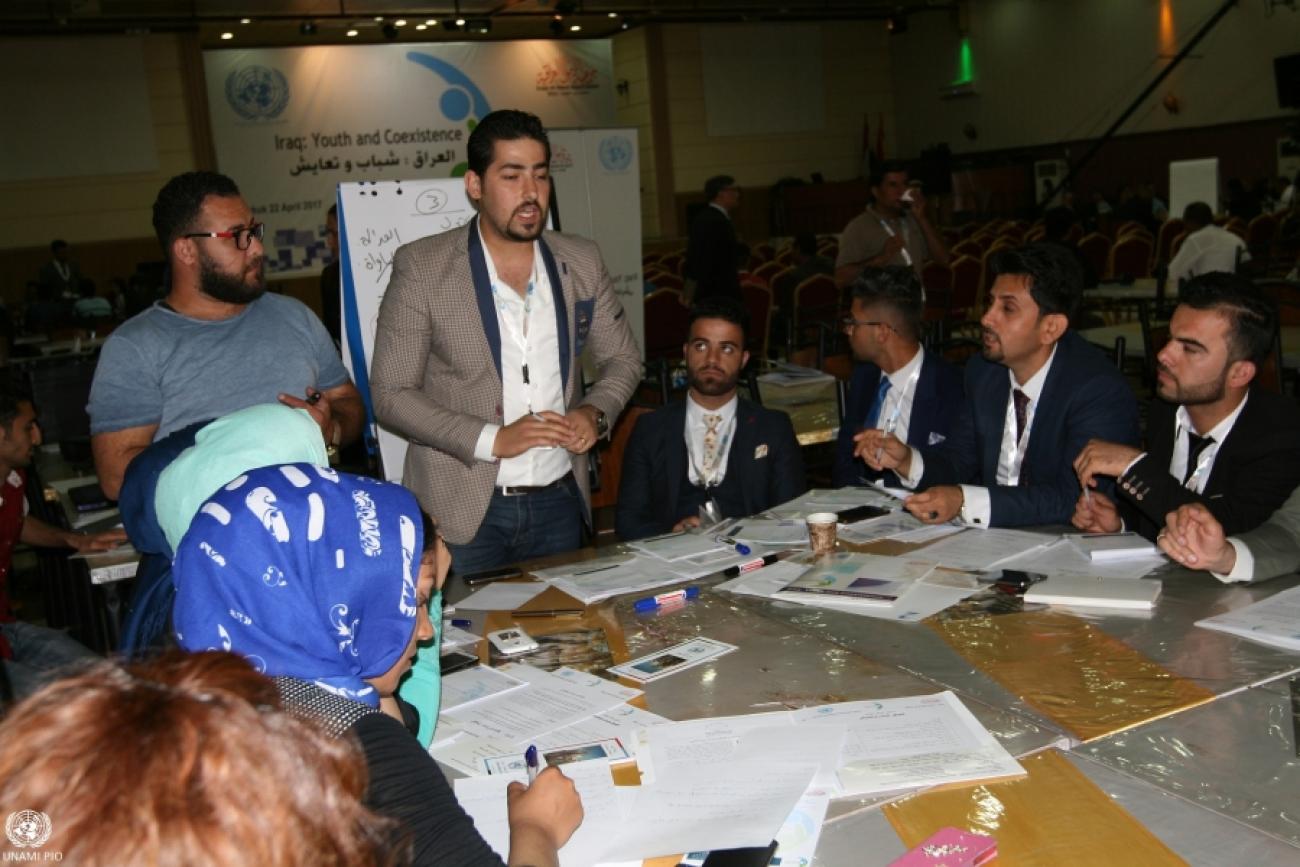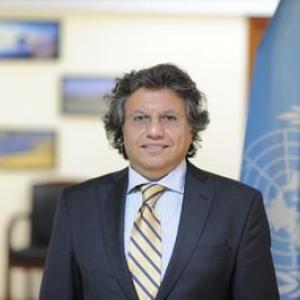The young women and men of Kirkuk from various ethnic and religious backgrounds insist they have no problem living in peace and harmony with each other.
Kirkuk, Iraq - The young women and men of Kirkuk from various ethnic and religious backgrounds insist they have no problem living in peace and harmony with each other, and they see in the “Iraq: Youth and Coexistence” forum which made its sixth cross-country stop in their city an opportunity to highlight this fact as well as advance the idea of national reconciliation.
On 22 April 2017, a total of 109 youth – 69 young men and 40 young women in the age group of 18-35 - participated in the “Iraq: Youth and Coexistence” forums in Kirkuk. The intention is to give a voice to youth for their crucial role in charting the road to peaceful coexistence in a future Iraq free of the terrorism of Daesh. A seventh meeting is scheduled for Baghdad, before an overarching conference in the Iraqi capital in late May to deliver recommendations from all the forums to the Government of Iraq on the way forward in national reconciliation.
Given that Kirkuk is a microcosm of Iraq’s diversity, there is no better place to capture this image of Iraqis – Kurd, Arab and Turkman, Sunni, Shia and Christian - living together in peace and harmony. Participants in the forum acted with this spirit, and their proposals ranged from strengthening the security forces and the issue of disarmament to separating religion from State affairs. But several participants who were interviewed by UNAMI Public Information Office (PIO) on the sidelines also blamed politics and some media for any tensions.
Sajida Sattar Saeed is a Kurd from Sulaymaniyah and her husband is from Kirkuk, but she likes to call Kirkuk home, having moved there after meeting her future husband in college and getting married.
“I see myself as a young participant wishing to develop Iraq so as to live in peace,” she said in an interview with UNAMI PIO.
Ms. Saeed was confident that this meeting will effect some changes and will not remain just on paper. “I’m Kurdish but all of us are equal. According to Islam, we are one family,” the 29-year-old English-language teacher said.
Another Kurd from Kirkuk, 32-year-old English major university graduate Mohammed Najeeb, sees richness and strength in diversity.
The co-founder of a youth voluntary group went on: “I believe in diversity. I participated to meet people and understand what they think about coexistence. Some young people are influenced by some political parties. I come from a village here in Kirkuk (Governorate), I always teach students how to be colorful and accept others, not to refuse other languages because you will lose the other’s identity”.
His views are shared by fellow Kirkuki ethnic Arab Mohammed Wadood. The 28-year-old unemployed Business Administration university graduate hails from Hadidiya, one of the oldest and well-known areas in Kirkuk.
“I liked the idea of participating, to interact with other young people as a human being, not as an Arab participant. I worked with voluntary organizations, including raising funds for IDPs. I noticed there are differences in opinions but everyone is accepting the other,” he said.
Recalling Kirkuk’s past in which different communities lived together in peace and harmony, Mr. Wadood insists his roots continue to dominate his thinking and is determined to ensure that Kirkuk continues to be the place it was before. “I had many opportunities to work in different places but Kirkuk is my love which I never think of leaving”.
Nadia Noor-Aldeen, a 28-year-old Kirkuki Turkman who teaches history and geography in the Turkish language at a private school, saw great benefit in having this meeting to promote tolerance and acceptance of different views.
“The forum gave us freedom of expression and the acceptance of others; it gave us a ground for equal opportunity among the young people regardless of our backgrounds”, she said. “We are different in ideas and opinions but agree on respecting each other. I used to teach in a school that had students from different ethnic groups but when I teach, I always emphasize on calling for peace without the interference of outsiders”.
The forum was organized by the United Nations Assistance Mission for Iraq (UNAMI) in cooperation with the Iraqi Al-Amal Organization. Deputy Special Representative of the Secretary-General (DSRSG) for Iraq for Political and Electoral Affairs assured the youth in closing remarks that their recommendations will be heard in the process of national reconciliation.
“You are the source of hope of the Iraqi people,” he said. “Keep up this process because the dialogue is a generator of these wonderful ideas we heard today.”



